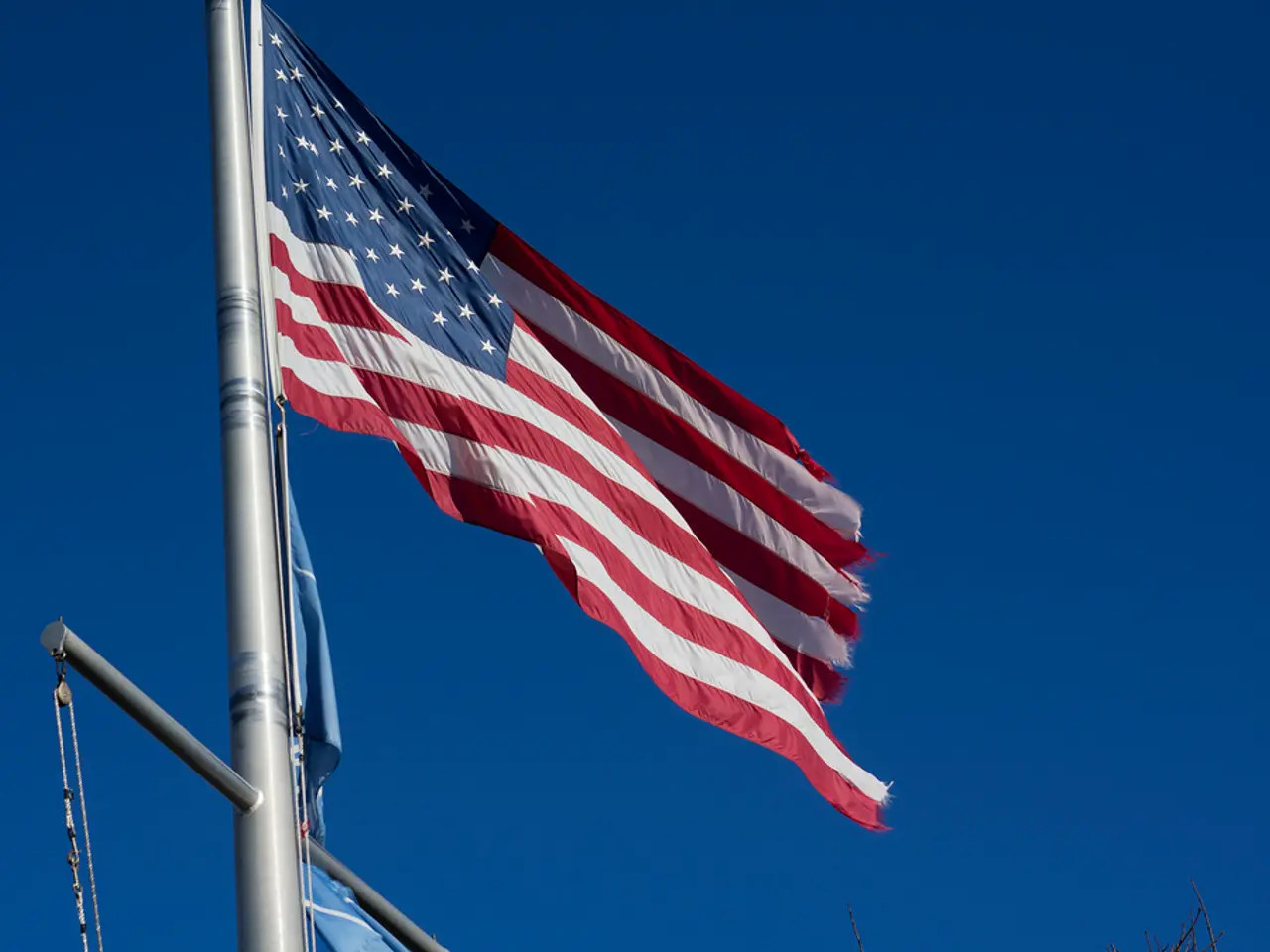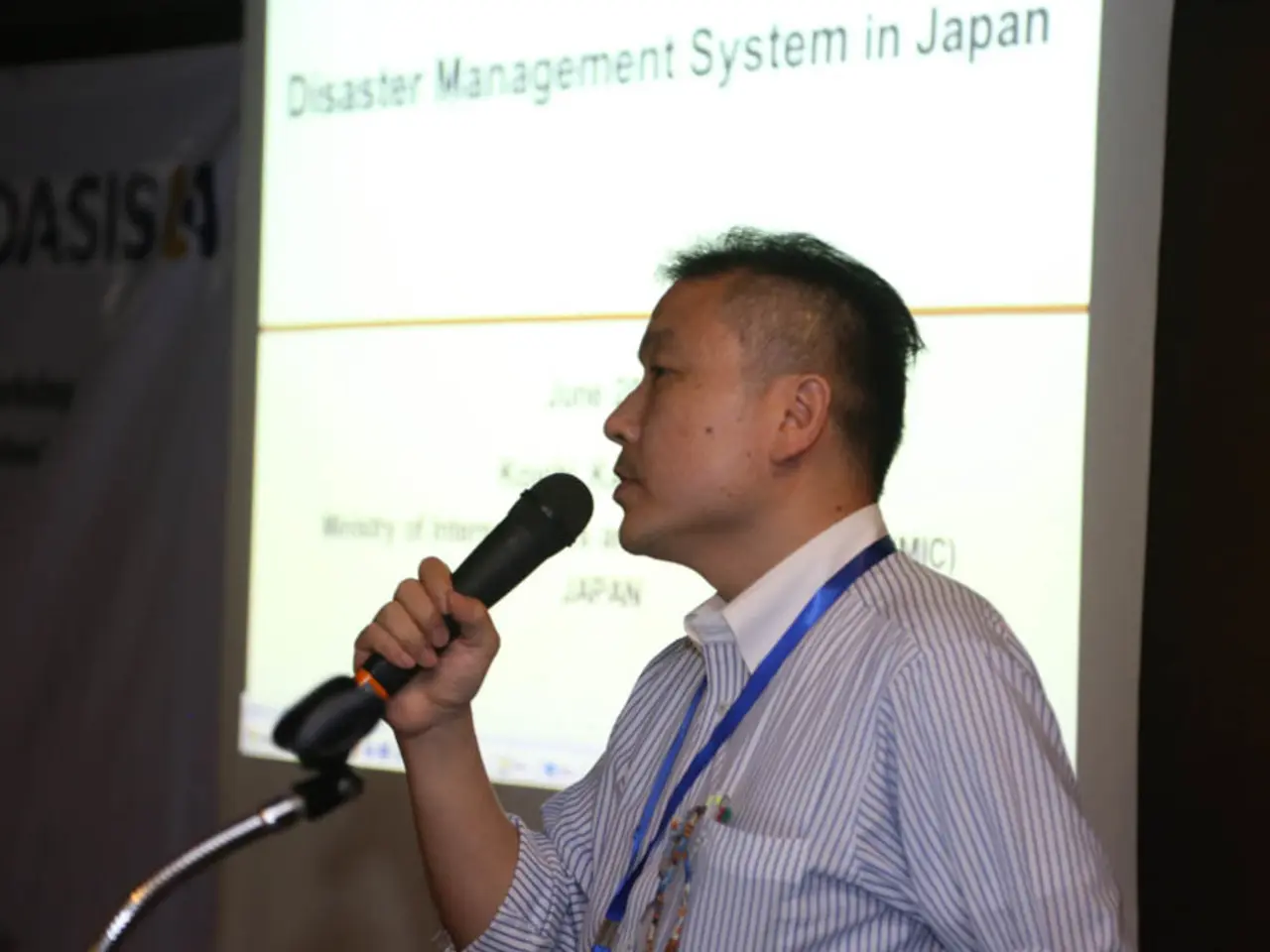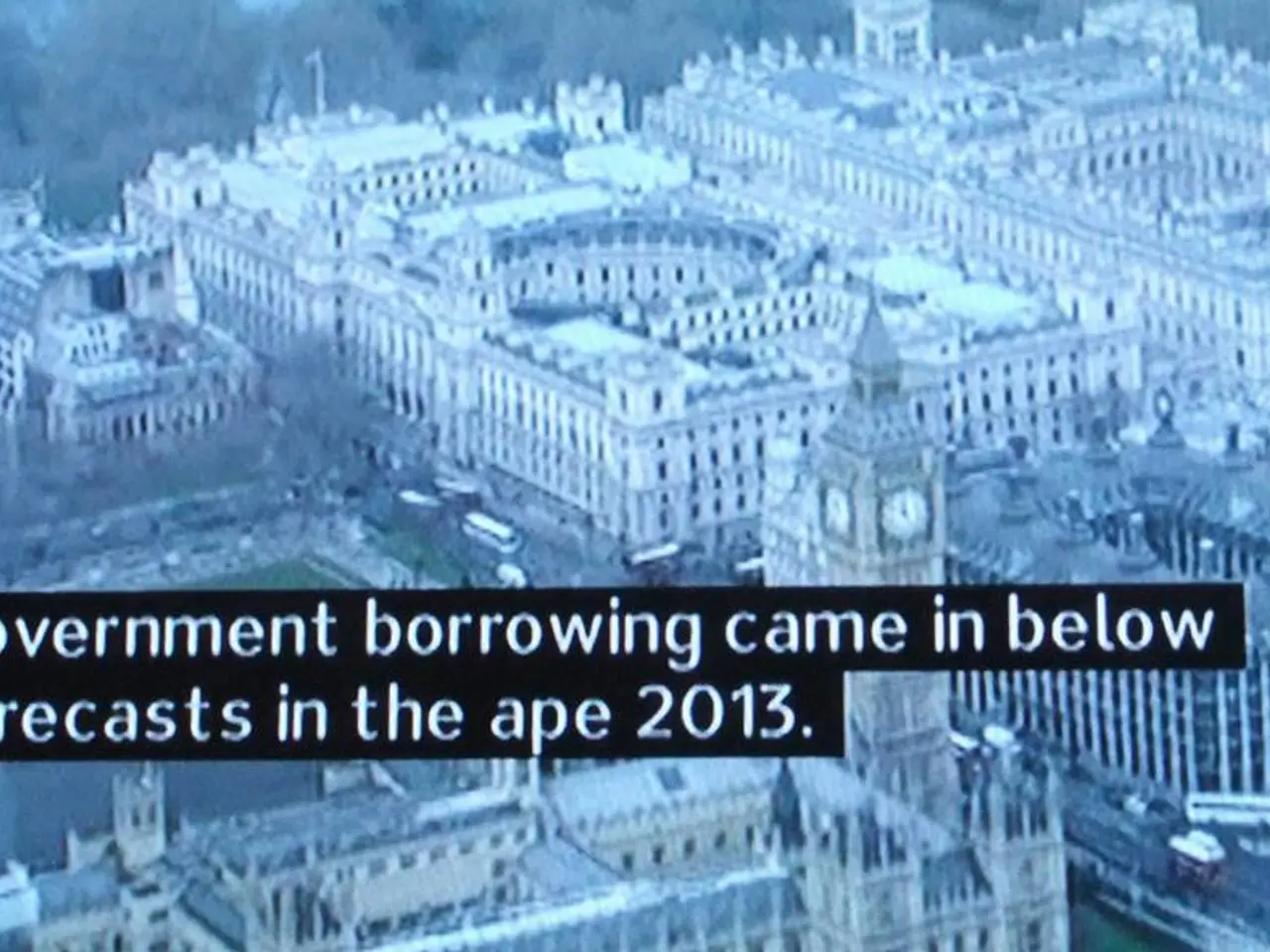On August 8, 1900, William J. Bryan vocalized his objection to the proposed annexation of the Philippines by the United States.
During the tumultuous 1900 presidential election, William Jennings Bryan emerged as a vocal opponent of the annexation of the Philippines, a controversial issue that divided the nation.
Bryan, the Democratic presidential candidate, found the annexation appalling, as it was being fought in the name of Christianity. He believed that the United States was denying American values and basic human rights to the Filipinos, contradicting the principles of self-government and liberty that the nation stood for[1].
The Republican party, led by presidential candidate William McKinley, advocated for American expansionism in the Philippines, arguing that it enhanced the strength of the country. However, the Republican party's platform lacked details on how to handle the challenges of annexation, including the Philippine-American War[1].
Bryan's arguments were a combination of ethical concerns about denying independence to the Filipinos and political concerns about imperial overreach and the consequences of entangling the U.S. in overseas colonies[1][2]. He feared that imperialism would take the U.S. on a path to a large standing army and militarism.
On August 8, 1900, Bryan delivered his acceptance speech, titled "Imperialism: Flag of an Empire," at the Democratic Convention held in Indianapolis, Indiana[3]. Despite his strong stance, Bryan lost to McKinley in the election, a defeat he also suffered in the 1896 election.
Bryan's anti-imperialist views were not limited to the presidential campaign. He was one of the leading anti-imperialists in the U.S., and his opposition to the annexation of the Philippines continued to grow and expand during his political career.
Dennis Edward Flake, a Public Historian and a park ranger in interpretation for the National Park Service at the Eisenhower National Historic Site in Gettysburg, PA, has written extensively on Philippine-American history. Flake is the author of three books on the subject and can be contacted at [email protected][4].
Bryan's legacy as an anti-imperialist continues to resonate today, as debates about American foreign policy and the balance between democracy and expansionism remain relevant. The Spanish-American War in 1898 changed the electoral politics in the United States, setting the stage for the divisive debates that took place during the 1900 presidential election.
References:
[1] Karnow, S. (1989). In Our Image: America's Empire in the Philippines. Penguin Books. [2] Catton, B. M. (1968). The Americanization of the World, 1865-1915. Little, Brown and Company. [3] "William Jennings Bryan: Speeches, Articles, Interviews, and Reminiscences." University of Nebraska Press, 1996. [4] Flake, D. E. (2010). The American Colonial Experience in the Philippines: A History of the U.S. Army's Philippine Scouts. University of Oklahoma Press.
- William Jennings Bryan's opposition to the annexation of the Philippines during the 1900 presidential election was a fusion of ethical concerns about denying independence to the Filipinos and political concerns about imperial overreach, which highlighted his anti-imperialist stance in both policy-and-legislation and war-and-conflicts.
- Bryan's legacy as an anti-imperialist, as evident in his strong stance against the annexation of the Philippines, continues to resonate today, making him a significant figure in debates about American foreign policy, balance between democracy and expansionism, and general-news issues related to the nation's role in war-and-conflicts and policy-and-legislation.






